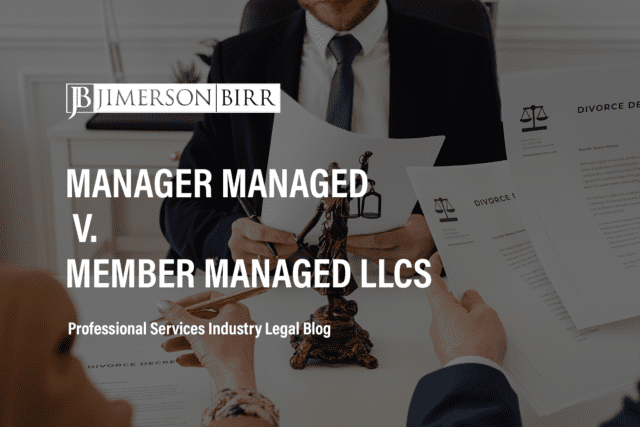What is a disagreement over shareholder rights?
There is often a difference of opinion among company shareholders regarding their entitlements and privileges as owners. Shareholders have certain rights, such as the right to vote on important company decisions, the right to receive dividends, the right to inspect company records, and the right to participate in shareholder meetings.
Disagreements over these rights may arise when there is a dispute over the allocation of these rights, the interpretation of the company’s bylaws or shareholder agreements, or the fairness of specific actions taken by the company or its management. For example, shareholders may disagree on how much say they should have in selecting the company’s board of directors or how much of its profits should be distributed as dividends.
However, these disputes may escalate in some cases, resulting in a proxy fight or other forms of shareholder activism. Shareholders may seek to resolve these disagreements through various means, such as engaging in dialogue with other shareholders, initiating legal action, or proposing to change the company’s bylaws or governance structure.
Need help with a matter related to a disagreement over shareholder rights? Schedule your consultation today with a top shareholder disputes and derivative litigation attorney.
In Florida, which laws and regulations apply to shareholder rights disagreements?
In Florida, the laws and regulations that relate to disagreements over shareholder rights include the Florida Business Corporation Act (FBCA), which governs the formation and operation of corporations in the state. Under the FBCA, shareholders have certain rights, such as the right to inspect and copy the corporation’s books and records, vote on some issues, and dissent from specific corporate actions. Shareholders also have the right to bring legal action against the corporation or its directors and officers for certain violations, such as breaches of fiduciary duty, fraud, or mismanagement.
In addition, Florida has laws and regulations related to shareholder meetings, such as requirements for notice, quorum, and voting procedures. Shareholders may also be subject to certain restrictions on their ability to transfer shares or engage in proxy voting.
What are common shareholder rights disagreements that lead to litigation?
Several common disagreements lead to litigation, including:
- Board of directors’ actions: Disputes may arise when shareholders disagree with decisions made by the board of directors, such as executive compensation, mergers and acquisitions, or other major business decisions.
- Voting rights: Shareholders may disagree on voting rights issues such as the election of directors or other important matters. These disputes may involve allegations of vote manipulation or other voting irregularities.
- Shareholder oppression: Minority shareholders may allege they are being oppressed or marginalized by the majority shareholders, such as through exclusion from important decisions or denial of access to company records.
- Breach of fiduciary duty: Shareholders may allege that the company’s officers or directors have breached their fiduciary duties by engaging in self-dealing or other conflicts of interest.
- Shareholder agreements: Shareholder disputes may arise when shareholders disagree over the interpretation or enforcement of shareholder agreements, such as buy-sell agreements, voting agreements, or other contractual arrangements.
When a set of facts is appropriate to cause lead to disagreement over shareholder rights, there are many paths a claimant may take. We are value-based attorneys at Jimerson Birr, which means we look at each action with our clients from the point of view of costs and benefits while reducing liability. Then, based on our client’s objectives, we chart a path forward to seek appropriate remedies.
To determine whether your unique situation may necessitate litigation, please contact our office to set up your initial consultation.
What evidence does a plaintiff generally need to file a lawsuit over shareholder rights, and what are common legal defenses to those claims?
The evidence that a plaintiff generally needs will depend on the claim’s specific nature. However, in general, a plaintiff must provide evidence supporting their allegations of wrongdoing or breach of contract.
For example, suppose the plaintiff alleges that the board of directors breached their fiduciary duty. In that case, they may need to provide evidence showing that the directors acted in bad faith, engaged in self-dealing, or failed to act in the company’s and its shareholders’ best interests. The plaintiff may also need to provide evidence showing the extent of the damages caused by the alleged breach.
Common legal defenses may include the following:
- Business judgment rule: This is a legal doctrine that gives deference to the business decisions of a company’s directors and officers. The business judgment rule presumes that directors and officers act in good faith and with the company’s best interests in mind.
- Lack of standing: Defendants may argue that the plaintiff lacks standing to bring the claim, either because they do not own enough shares to be considered a shareholder or do not have a legal right to assert the claim.
- Statute of limitations: Defendants may argue that the plaintiff’s claim is time-barred, meaning it was not brought within the applicable statute.
- Failure to state a claim: Defendants may argue that the plaintiff has failed to state a claim upon which relief can be granted, meaning that the plaintiff has not alleged sufficient facts to support their legal claim.
To see what actions or defenses may be available for your unique situation, please contact our office to set up your initial consultation.
Frequently Asked Questions
- Can disputes over shareholder rights be avoided?
Disputes over shareholder rights can sometimes be avoided through effective communication, transparency, and good corporate governance. Therefore, it is crucial for companies to have clear bylaws and governance structures in place and to communicate effectively with shareholders to address their concerns.
- How are disputes over shareholder rights typically resolved?
Disputes over shareholder rights can be resolved through various means before litigating, such as engaging in dialogue with other shareholders, initiating legal action, or proposing to change the company’s bylaws or governance structure.
Have more questions about a disagreement over shareholder rights-related situation?
Crucially, this overview of disagreement over shareholder rights does not begin to cover all the laws implicated by this issue or the factors that may compel the application of such laws. Every case is unique, and the laws can produce different outcomes depending on the individual circumstances.
Jimerson Birr attorneys guide our clients to help make informed decisions while ensuring their rights are respected and protected. Our lawyers are highly trained and experienced in the nuances of the law, so they can accurately interpret statutes and case law and holistically prepare individuals or companies for their legal endeavors. Through this intense personal investment and advocacy, our lawyers will help resolve the issue’s complicated legal problems efficiently and effectively.
Having a Jimerson Birr attorney on your side means securing a team of seasoned, multi-dimensional, cross-functional legal professionals. Whether it is a transaction, an operational issue, a regulatory challenge, or a contested legal predicament that may require court intervention, we remain a tireless advocate every step of the way. Being a value-added law firm means putting the client at the forefront of everything we do. We use our experience to help our clients navigate even the most complex problems and come out the other side triumphant.
If you want to understand your case, the merits of your claim or defense, potential monetary awards, or the amount of exposure you face, you should speak with a qualified Jimerson Birr lawyer. Our experienced team of attorneys is here to help. Call Jimerson Birr at (904) 389-0050 or use the contact form to schedule a consultation.

We live by our 7 Superior Service Commitments
- Conferring Client-Defined Value
- Efficient and Cost-Effective
- Accessibility
- Delivering an Experience While Delivering Results
- Meaningful and Enduring Partnership
- Exceptional Communication Based Upon Listening
- Accountability to Goals











